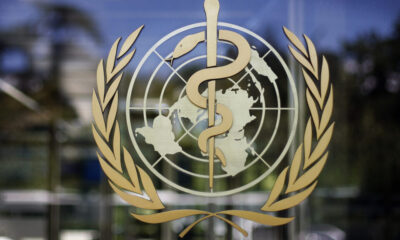Health
Increasing doctors’ knowledge about the impact of climate change on health and the sustainability of healthcare

Credit: Pixabay/CC0 public domain
An educational program emphasizing the relationship climate change has to health and the environmental sustainability of health care was well received by physicians, according to a recent survey-based study published in JAMA network opened and conducted by researchers at Massachusetts General Hospital (MGH), a founding member of the Mass General Brigham health care system.
The program provided a primer on climate change and the impact of fossil fuel-related pollution on health; the contribution of the healthcare system to carbon pollution; and opportunities to address these challenges. To the team’s knowledge, MGH is the first academic medical center to offer incentivized educational programs on climate change and environmental sustainability in healthcare.
“Climate change is a fundamental threat that many see as the greatest health crisis humans have ever faced. However, surveys show that the majority of physicians do not feel prepared to address or take action on the impact of climate change on health,” said lead author Wynne Armand, MD, deputy director of the Center for the Environment and Health at MGH and assistant professor of medicine at Harvard Medical School.
In their study, Armand and her colleagues examined the response to climate change-focused educational modules offered at MGH, an academic medical center, through an existing biannual quality incentive program for physicians.
Of a total of 2,559 eligible physicians and psychologists, 2,417 (94.5%) completed the educational modules. Of these participants, 73.1% felt the modules were relevant or very relevant to their lives, and 65.4% felt the modules were relevant or very relevant to their clinical practice.
Age did not influence the extent to which physicians thought climate-related education was relevant to their individual lives or practice. Doctors who identified as women were more likely to find the training relevant than male doctors.
As expected, physicians in specialties that specifically address issues more directly exacerbated by climate change, such as emergency medicine/emergency care, allergy and primary care, were more likely to find the training relevant to their practice.
“Our findings indicate that education strategies should be tailored by specialty to better engage physicians in learning about the health impacts of climate change and ways to mitigate the healthcare sector’s contributions,” said Armand.
Optional comments were provided by 446 (18.5%) of respondents: 56.1% were positive, 36.5% were neutral and 7.4% were negative. Many positive comments supported the importance of the topic and provided suggestions to reduce the hospital’s carbon footprint. Others asked for additional ways to get involved.
Negative comments stated that quality improvement training should focus on patient care and that providing climate information to physicians is inappropriate given their limited influence on hospital-wide policy.
Overall, the survey results indicate that most physicians believe that education about the complex relationships between climate change and health care is important, and they welcome opportunities for action. Importantly, participants felt that their knowledge of these topics increased after completing the modules.
Similar efforts in the healthcare sector can help all stakeholders recognize and address the health risks of climate change and take steps to minimize their contribution to the problem.
More information:
Clinical knowledge and attitudes about climate change and health after a quality incentive program, JAMA network opened (2024). DOI: 10.1001/jamanetworkopen.2024.26790
Quote: Increasing Physicians’ Knowledge of the Impact of Climate Change on Health and Healthcare Sustainability (2024, August 8), retrieved August 11, 2024 from https://medicalxpress.com/news/2024-08-clinicians- knowledge-climate-impact-health. html
This document is copyrighted. Except for fair dealing purposes for the purpose of private study or research, no part may be reproduced without written permission. The content is provided for informational purposes only.













